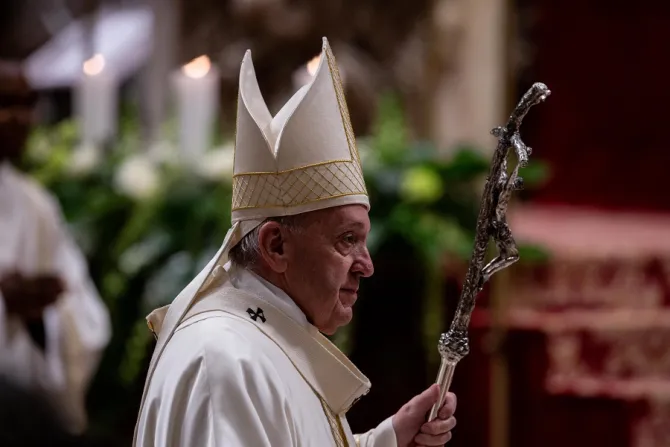There is an urgent need for personal conversion, without which the temptations of Satan, and the presence of evil, create a “hell here on earth,” Pope Francis said yesterday in his 2020 Lenten message.
“Christian joy flows from listening to, and accepting, the Good News of the death and resurrection of Jesus,” he said. “Whoever believes this message rejects the lie that our life is ours to do with as we will.”
Rather, the pope said, life is born of the love of God our Father.
“If we listen instead to the tempting voice of the ‘father of lies,’ we risk sinking into the abyss of absurdity, and experiencing hell here on earth, as all too many tragic events in the personal and collective human experience sadly bear witness,” he stated.
Pope Francis’ Lenten message was published 24 February. It was signed 7 October, 2019, the feast of Our Lady of the Rosary.
With the season of Lent, the Lord gives Catholics again a time of preparation for Jesus’ death and resurrection, “the cornerstone of our personal and communal Christian life,” he said, urging Catholics to not take this time of conversion for granted.
“This new opportunity ought to awaken in us a sense of gratitude and stir us from our sloth,” he argued. “Despite the sometimes tragic presence of evil in our lives, and in the life of the Church and the world, this opportunity to change our course expresses God’s unwavering will not to interrupt his dialogue of salvation with us.”
In his message for Lent 2020, which will begin tomorrow Francis spoke about the “urgency of conversion,” and quoted his 2019 apostolic exhortation Christus Vivit.
“Keep your eyes fixed on the outstretched arms of Christ crucified, let yourself be saved over and over again. And when you go to confess your sins, believe firmly in his mercy which frees you of your guilt. Contemplate his blood poured out with such great love, and let yourself be cleansed by it. In this way, you can be reborn ever anew.”
During Lent, a penitential period preceding the Church’s celebration of the death and resurrection of Christ, Catholics are called to a renewed practice of almsgiving, fasting, and prayer.
Pope Francis recalled that prayer is “more than a duty,” but that it is “an expression of our need to respond to God’s love which always precedes and sustains us.”
Christians pray with the knowledge they are unworthy, but still loved by God, he said.
Francis also spoke about the paschal mystery and putting it at the center of one’s life, which he said means to have compassion for Christ crucified as represented in “the many innocent victims of wars, in attacks on life, from that of the unborn to that of the elderly, and various forms of violence.”
Christ’s wounds are also represented in “environmental disasters, the unequal distribution of the earth’s goods, human trafficking in all its forms, and the unbridled thirst for profit, which is a form of idolatry,” he stated.
About almsgiving, the pope said sharing one’s worldly goods helps to make the world a better place.
“Charitable giving makes us more human, whereas hoarding risks making us less human, imprisoned by our own selfishness,” he said.
Francis said apart from giving alms, Christians must also consider the structure of economic life, which is why he has convened in March a meeting with young men and women from around the world to bring about “a more just and inclusive economy.”
“The Economy of Francesco,” which will be attended by around 2,000 economists and entrepreneurs under the age of 35, will be held in Assisi 26-28 March.
Pope Francis pointed to the crucified Jesus, who was sinless yet took on “the weight of our sins.”
“May we not let this time of grace pass in vain, in the foolish illusion that we can control the times and means of our conversion to him,” he urged.
“I ask Mary Most Holy to pray that our Lenten celebration will open our hearts to hear God’s call to be reconciled to himself, to fix our gaze on the paschal mystery, and to be converted to an open and sincere dialogue with him.”

